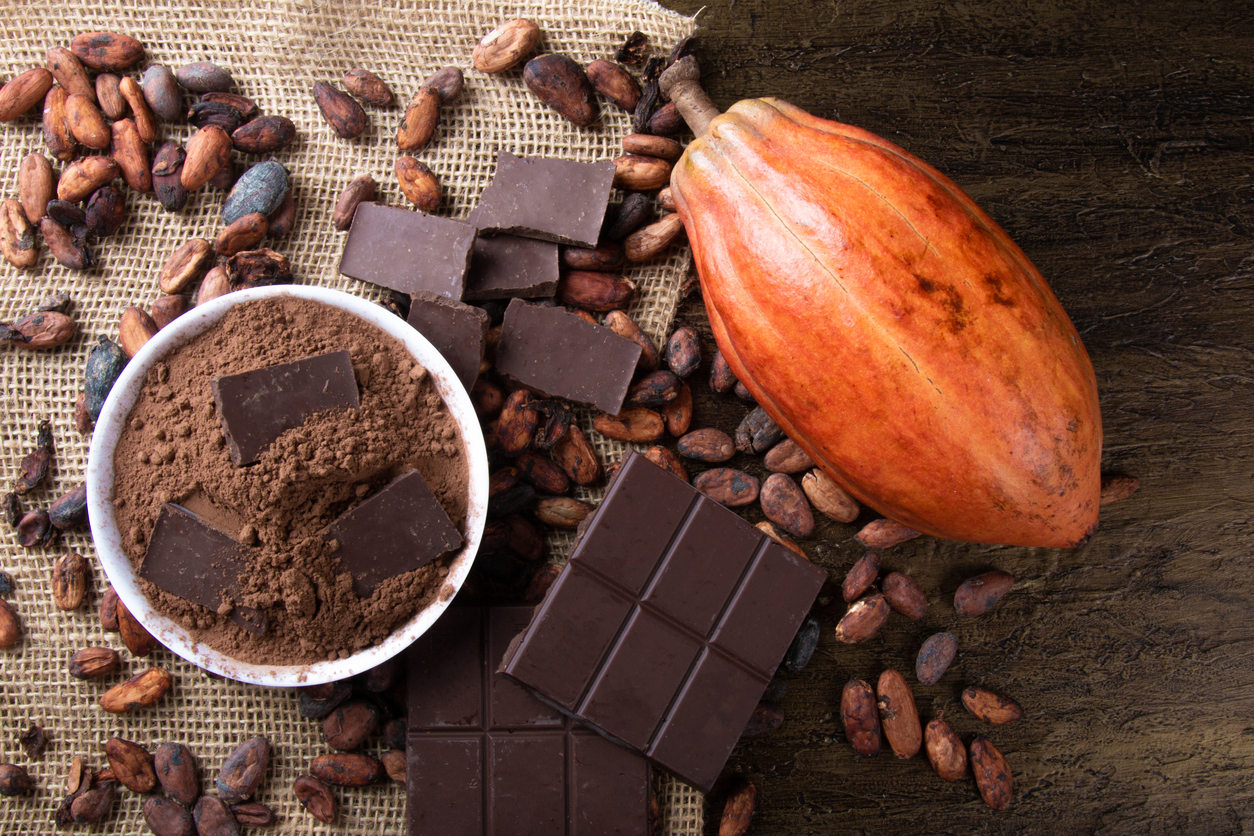Exploring the Fascinating Journey of Cocoa and Chocolate Confectionery Manufacturing in Nigeria with Wigmore Trading
Exploring the Fascinating Journey of Cocoa and Chocolate Confectionery Manufacturing in Nigeria with Wigmore Trading
Welcome to the tantalizing world of cocoa and chocolate confectionery manufacturing in Nigeria! In this blog post, we invite you to embark on a fascinating journey with us as we delve into the rich history, intricate processes, and delightful flavors that have made Nigeria a rising star in the global chocolate industry. Joining forces with Wigmore Trading – an esteemed player in this lucrative arena – we’ll uncover the secrets behind cultivating top-quality cocoa beans, unravel the art of crafting mouthwatering chocolates, and explore how these delectable treats are transforming lives and empowering local communities. Get ready to satisfy your sweet tooth while uncovering the hidden gems of Nigeria’s cocoa legacy like never before!
Introduction to Wigmore Trading and its role in the cocoa and chocolate confectionery industry in Nigeria
Introduction to Wigmore Trading:
Wigmore Trading is a leading supplier and distributor of cocoa and chocolate confectionery products in Nigeria. With decades of experience in the industry, they have established themselves as a trusted name among manufacturers, retailers, and consumers alike.
Role in the Cocoa and Chocolate Confectionery Industry in Nigeria:
Nigeria is one of the top producers of cocoa beans in the world. However, despite this abundance of raw material, the country has been facing challenges in developing its own chocolate manufacturing industry. This is where Wigmore Trading steps in – by bridging the gap between cocoa production and local processing.
By importing high-quality cocoa beans from various countries such as Ghana, Ivory Coast, Cameroon, and Ecuador, Wigmore Trading supports local manufacturers with a reliable supply chain for their production needs. They also provide technical assistance to these manufacturers to improve their processes and ensure that the end product meets international standards.
Furthermore, Wigmore Trading also plays a crucial role in introducing new technologies and equipment for chocolate confectionery production to Nigerian businesses. This not only helps local companies stay competitive but also contributes to the growth of the overall industry.
In addition to supporting local producers, Wigmore Trading also caters to the growing demand for premium quality chocolate products among Nigerian consumers. Their wide range of imported chocolates from renowned brands such as Lindt, Toblerone, Cadbury’s Dairy Milk, etc., have gained popularity among chocoholics across the country.
A brief history of cocoa and chocolate manufacturing in Nigeria
Cocoa cultivation in Nigeria dates back to the late 19th century when British colonizers introduced cocoa farming to the country. The favorable climate and soil conditions in southern Nigeria were ideal for growing cocoa trees, leading to a rapid expansion of the industry.
The first commercial cocoa farm was established in 1879 by a Swiss missionary named Fernard Hundt. He planted cocoa seedlings brought from Fernando Po Island, which is now known as Equatorial Guinea. This marked the beginning of widespread cocoa cultivation in Nigeria.
By the early 20th century, Nigeria had become one of the largest producers of cocoa in the world, with exports primarily going to Europe and North America. The success of the industry attracted many foreign companies and investors who established large-scale plantations and processing facilities.
In the 1920s, Cadbury, a British confectionery company, set up a factory in Lagos to produce its famous Bournvita brand using locally sourced cocoa beans. This not only boosted local production but also created job opportunities for Nigerians.
However, despite its initial success, the Nigerian cocoa industry faced numerous challenges over time. In the 1950s and 1960s, there was an oversupply of cocoa on the global market due to increased production from other countries like Ghana and Ivory Coast. As a result, prices dropped significantly, causing financial strain on farmers and processors.
The process of cocoa cultivation and production in Nigeria
Cocoa has been a major part of Nigeria’s economy for over a century, with the country being one of the largest producers of cocoa beans in the world. The process of cocoa cultivation and production in Nigeria is not only essential for the country’s economy but also plays a significant role in providing employment opportunities for thousands of people.
The first step in cocoa cultivation is selecting the right location for planting. Cocoa trees thrive in areas with well-drained soil, good rainfall, and plenty of shade. In Nigeria, most cocoa farms are located in the southern part of the country, particularly Ondo, Cross River, and Ekiti states.
Once the location is chosen, farmers prepare the land by clearing it of any weeds or debris. The soil is then tilled to loosen it up and make it easier for planting. Afterward, seedlings are planted either directly into the ground or in nursery beds to allow them to grow into healthy young plants before transplanting them onto the farm.
It takes about four years from planting for a cocoa tree to start bearing fruit. During this time, farmers must ensure proper maintenance and care by regularly pruning and fertilizing their trees. This process helps increase productivity and improve bean quality.
When ripe pods appear on the trees after four years, they are carefully picked by hand using machetes or long poles with sickles attached at one end. This labor-intensive process requires skilled workers who know how to identify ripe pods without damaging them or causing harm to themselves.
Challenges faced by the Nigerian cocoa industry and how Wigmore Trading is addressing them
Nigeria has a long history of cocoa production, being one of the world’s top producers and exporters of cocoa beans. The country’s cocoa industry contributes significantly to its economy, providing employment opportunities for millions of people and generating billions in revenue. However, despite its prominence in the global market, the Nigerian cocoa industry faces several challenges that hinder its growth and potential.
One major challenge faced by the Nigerian cocoa industry is low productivity. Despite having vast land suitable for cocoa cultivation, Nigeria’s average yield per hectare is significantly lower than other top producing countries such as Cote d’Ivoire and Ghana. This can be attributed to factors such as aging trees, poor farm management practices, and inadequate access to modern farming techniques.
Another significant challenge is the lack of infrastructure and access to technology. Many cocoa farmers in Nigeria still rely on traditional methods of farming with limited access to modern tools and equipment. This not only affects their productivity but also makes it challenging to maintain quality standards required by buyers in the international market.
Additionally, price fluctuations in the global market also pose a challenge for Nigerian cocoa farmers. Prices are often unstable due to factors such as weather conditions, political instability in producing countries, and changes in demand from large chocolate manufacturers.
In response to these challenges faced by the Nigerian cocoa industry, Wigmore Trading has taken several initiatives aimed at addressing them effectively. Firstly, they have been working closely with local farmers to educate them on improved farming practices that can increase productivity and enhance the quality of their produce.
How Wigmore Trading is contributing to sustainable cocoa production in Nigeria
Wigmore Trading has been playing a significant role in promoting sustainable cocoa production in Nigeria. The company firmly believes that sustainable cocoa production is not only crucial for the environment but also for the economic and social development of the country.
To achieve this, Wigmore Trading has implemented various initiatives to support and encourage sustainable farming practices among cocoa farmers in Nigeria. One of their key initiatives is partnering with local cooperatives and farmer groups to provide training on sustainable farming techniques.
Through these partnerships, Wigmore Trading educates farmers on the importance of good agricultural practices such as proper soil management, pest control, and efficient water usage. These practices not only improve crop quality but also reduce environmental impact by minimizing the use of harmful chemicals.
Moreover, Wigmore Trading also emphasizes the importance of fair labor practices and child protection policies among cocoa farmers. This ensures that the workers involved in cocoa production are treated fairly and ethically while safeguarding children from exploitation.
In addition to education, Wigmore Trading also supplies high-quality inputs such as fertilizers and seeds to farmers at affordable prices. By providing access to these resources, small-scale farmers can increase their yields without compromising on sustainability standards.
Another significant aspect of Wigmore Trading’s contribution to sustainable cocoa production is its commitment to purchasing sustainably sourced beans directly from cocoa farmers. This direct trade approach eliminates intermediaries and guarantees fair prices for farmers while promoting transparency in the supply chain.
Furthermore, Wigmore Trading strives to reduce its carbon footprint by implementing environmentally friendly practices in its own operations.
The art of chocolate confectionery making: from bean to bar with Wigmore Trading
Chocolate has been a beloved treat for centuries, and its journey from cocoa bean to chocolate bar is a fascinating process. At Wigmore Trading, we are proud to be a part of this journey as we specialize in providing high-quality cocoa and chocolate confectionery ingredients to the Nigerian market. Join us as we delve into the art of chocolate confectionery making and discover how our products play a crucial role in creating these delectable treats.
The Journey Begins: From Bean to Butter
It all starts with the cocoa bean, which is harvested from cacao trees that are primarily grown in West African countries like Nigeria. These beans are then fermented and dried before being shipped off to manufacturers like us. Upon arrival, the beans go through a rigorous cleaning process to remove any impurities or debris.
Next comes roasting, where the beans are heated at high temperatures to bring out their rich flavor and aroma. This step also helps loosen the outer shell of the bean, known as the husk, making it easier to remove during the cracking process. The cracked beans then go through a winnowing machine which separates the husks from the nibs – small pieces of pure cocoa that will eventually be ground into chocolate liquor.
Popular Nigerian chocolate brands
Nigeria may not be the first country that comes to mind when you think of chocolate production, but the West African nation has a long history and rich culture in cocoa farming and chocolate manufacturing. In recent years, the Nigerian chocolate industry has been gaining recognition for its high-quality products and unique flavor profiles. In this section, we will explore some of the popular Nigerian chocolate brands that have made their mark in the confectionery world.
1. Oluji Pure Cocoa Chocolate
Oluji Pure Cocoa Chocolate is one of Nigeria’s oldest and most renowned chocolate brands. Established in 1947, it is produced by Owena Cocoa Processing Company, located in Idanre, Ondo State. The company prides itself on using only locally grown cocoa beans from smallholder farmers, ensuring fair trade practices and sustainable sourcing.
Oluji Pure Cocoa Chocolate offers a range of products, including dark chocolates with varying cocoa percentages (70% to 100%), milk chocolates, and white chocolates. Their bars are known for their smooth texture and rich aroma, making them a favorite among locals and tourists alike.
2. Chocolat Royal
Chocolat Royal is another popular Nigerian chocolate brand that has gained international recognition for its exquisite taste. Founded in 2004 by Mrs. Toyin Onigbanjo, Chocolat Royal uses premium quality cocoa beans sourced from different regions of Nigeria to create their signature blends.








Comments are closed.